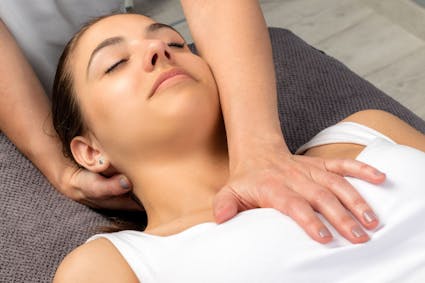
What is a balance disorder?
A balance disorder is a condition that makes you feel unsteady or dizzy. If you are standing, sitting, or lying down, you might feel as if you are moving, spinning, or floating. If you are walking, you might suddenly feel as if you are tipping over.
Everyone has a dizzy spell now and then, but the term "dizziness" can mean different things to different people. For one person, dizziness might mean a fleeting feeling of faintness, while for another it could be an intense sensation of spinning (vertigo) that lasts a long time.
Experts believe that more than four out of 10 Americans, sometime in their lives, will experience an episode of dizziness significant enough to send them to a doctor. Balance disorders can be caused by certain health conditions, medications, or a problem in the inner ear or the brain. A balance disorder can profoundly impact daily activities and cause psychological and emotional hardship.
What are the symptoms of a balance disorder?
If you have a balance disorder, you may stagger when you try to walk, or teeter or fall when you try to stand up. You might experience other symptoms such as:
- Dizziness or vertigo (a spinning sensation)
- Falling or feeling as if you are going to fall
- Lightheadedness, faintness, or a floating sensation
- Blurred vision
- Confusion or disorientation.
Other symptoms might include nausea and vomiting, changes in heart rate and blood pressure, and fear, anxiety, or panic.
Symptoms may come and go over short time periods or last for a long time, and can lead to fatigue and depression.What causes balance disorders?
There are many causes of balance problems, such as medications, ear infections, a head injury, or anything else that affects the inner ear or brain. Low blood pressure can lead to dizziness when you stand up too quickly. Problems that affect the skeletal or visual systems, such as arthritis or eye muscle imbalance, can also cause balance disorders. Your risk of having balance problems increases as you get older.
Unfortunately, many balance disorders start suddenly and with no obvious cause.
Common Diagnoses We Work With Include:
- Central Nervous System Disorders
- Neuropathy
- Age-Related Balance Dysfunction
- Oculomotor (Visual) Dysfunction
- Benign Paroxysmal Positional Vertigo (BPPV)
- Labyrinthitis
- Ménière's Disease
- Vestibular Neuronitis
- Muscle Atrophy
- Nerve Injuries
Treatment for Balance Disorders
There are more than a dozen causes of dizziness and many reasons why you might have difficulty with your balance.
Treatment of balance & dizziness disorders can be very complex. Nevertheless, we have helped numerous residents in the community cope with or recover from conditions that cause balance disorders.
The first thing your doctor will do if you have a balance problem is determine if another health condition or a medication is to blame. If so, your doctor will treat the condition, suggest a different medication, or in many cases, refer you to one of our balance disorder experts here at Boston Physical Therapy & Wellness.
How Our Physical Therapists Can Help
Physical therapist directed treatment can assist patients with balance disorders in a number of ways. As experts in the evaluation and treatment of movement, muscle, joint, and nervous system disorders, our physical therapists can prescribe and implement a variety of treatments including:
- Coordination Exercises
- Proprioception Exercises
- Strengthening Exercises
- Stretching and Range of Motion Exercises
- Posture Exercises
- Retraining of the Inner Ear
- Visual Tracking Training
Reduce Fear of Falling. By addressing specific problems that are found during the examination, your physical therapist will help you regain confidence in your balance and your ability to move freely, and perform daily activities. As you build confidence in your balance and physical ability, you will be better able to enjoy your normal daily activities.
Care Collaboration. Working in collaboration with your medical doctor, allows you to get two expert opinions and assessments of your condition. Together, we can better address your balance disorders and decrease your fear of falling and fall risks.
Call Today
Call us today to learn more about how we can develop a personalized treatment program for your balance problems and help you get back to enjoying a higher quality of life.
Reference: www.ChoosePT.com
